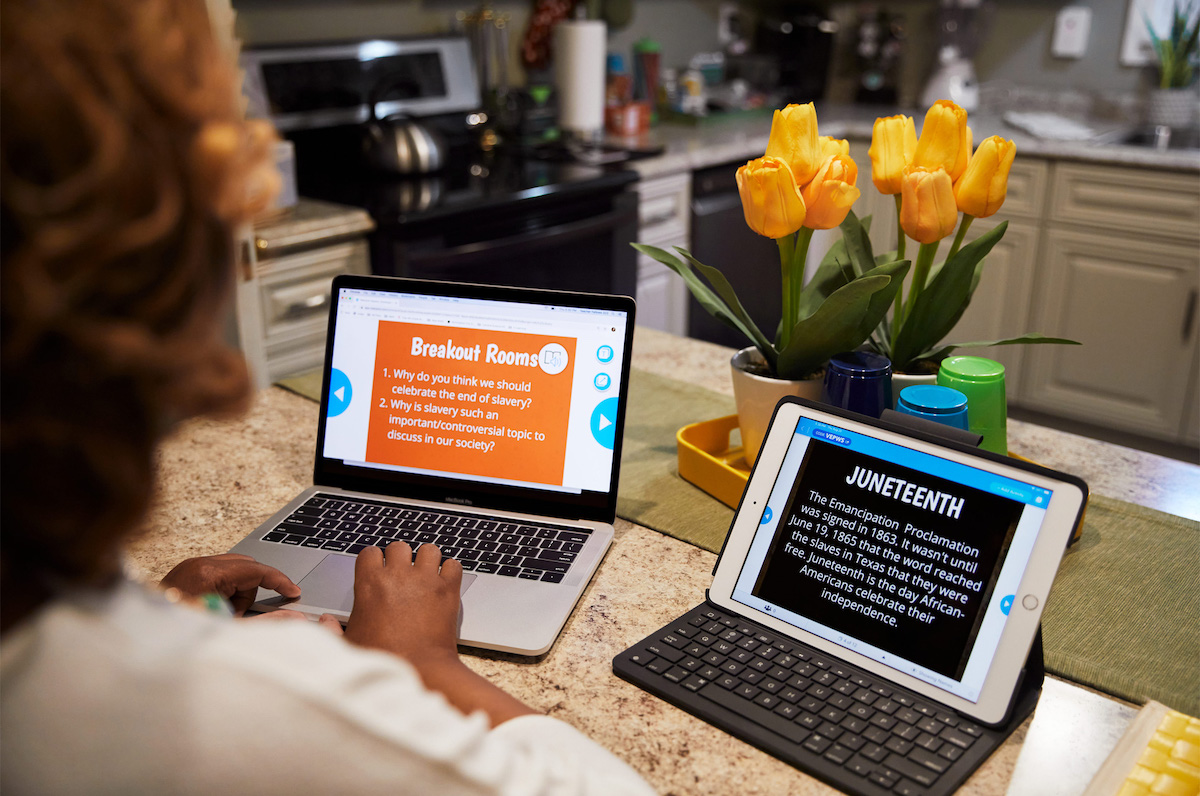Apple does not only manufactures technology but also empowers consumers to develop technological solutions. Community Education Initiative (CEI) is part of the company’s virtual coding academy which equips teachers to use innovative methods in their lesson planning and curriculum in the United States. In the company’s feature, a proud facilitator, Portrice Warren shares her experience as an active participant in the coding program who is working to bring meaningful change in the lives of her students and their academic journey, especially in this testing time of COVID-19 pandemic.
Warren is a fourth-grade science and social studies teacher at Birmingham City Schools in Alabama and she is giving us all learning goals that a person needs to adapt to new ways to tackle new challenges. She says,
“Ten years from now, I want my students to look back and see the powerful impact remote learning had on them, and that it was a positive transition,” says Warren. “There are going to be a lot of challenges, but I won’t let my students fall through the cracks. I know there is going to be a lot of hard work involved, but in the long run it will pay off. And that investment in their future is my purpose.”

Community Education Initiative 2020 for a School Year like No Other
With nearly 500 educators, this virtual coding academy is designed “to bring coding, creativity, and workforce development opportunities to learners of all ages and to communities that are traditionally underrepresented in technology.” The CEI program is available in 24 cities across the United States with the main focus on communities of Black and Brown students.
The objective of Community Education Initiative 2020 was to help educators learn tools to code and teach coding in a remote learning context to prepare them for an unusual school year. The activities were student-centered designed to experience the learning remotely from their perspective and troubleshooting issues before starting an online session.
“Throughout the weeklong virtual coding academy, Warren and the other educators took on the role of student and worked together remotely using Apple tools, including the Everyone Can Code and Develop in Swift curricula, to design apps that solve real-world problems, an approach called challenge-based learning.”

“Especially now that we are transitioning to remote learning and students won’t be in the same physical classroom with their friends, challenge-based learning is going to be one of the tools that will take my students’ learning to the next level. I see this method as a motivational tool. I can use Keynote throughout my curriculum to give students the freedom to take what they know and to use their own giftedness, their own learning style, to recreate knowledge in their own way.”

3 comments
Comments are closed.